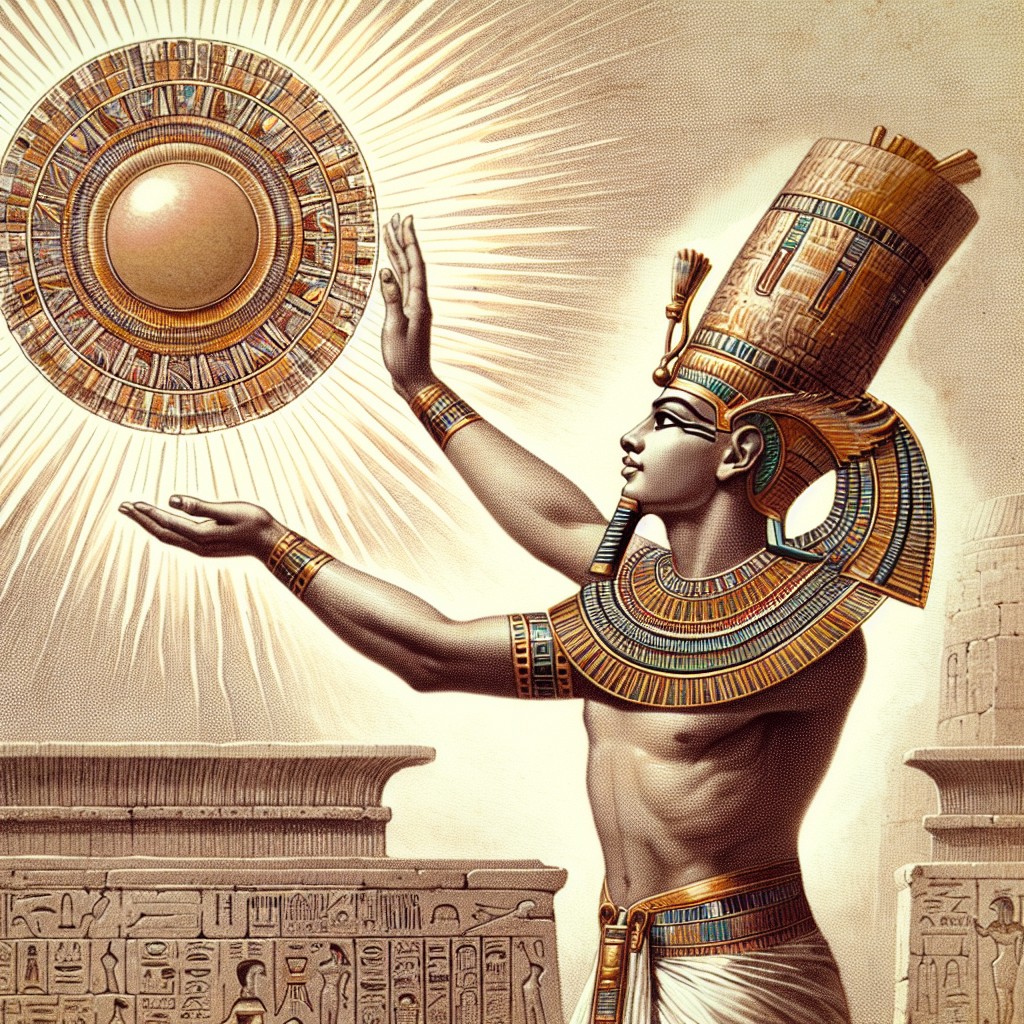The heretic pharaoh
Akhenaten and his erasure from history

Akhenaten worshipping the sun disk Aten - AI-generated image
Akhenaten (Thebes, 1375 BCE – Akhetaten, 1334/1333 BCE), also known as Amenhotep IV during the first 5 years of his reign, is remembered in history as the first Egyptian pharaoh to establish the worship of a single deity, abandoning the multitude of gods that traditionally populated the Egyptian pantheon.
The 2nd son of Amenhotep III and Queen Tiye, Akhenaten ascended to the throne following the death of his brother Thutmose, inheriting a reign that was not originally destined for him. In the early years of his rule, he initiated numerous architectural projects dedicated to the god he had always revered: Aten, the solar disk. This devotion brought him into conflict with the "High Priest of Amun", the most powerful religious figure in the kingdom, whose influence was diminished under the new pharaoh.
Challenging the established religious order, Akhenaten ("Beloved of Aten" in Egyptian) mandated the exclusive worship of Aten, banning the veneration of other Egyptian gods. This shift significantly enhanced his spiritual and political authority while curbing the power of the priesthood. He outlawed other religious practices, changed his name from Amenhotep IV to Akhenaten, and built a new capital, Akhetaten (modern-day Amarna), meaning "Horizon of Aten" in Egyptian.
Despite the ambitious architectural projects that brought employment and prosperity to Egypt, Akhenaten became increasingly focused on religious matters at the expense of political and military affairs, leading to a period of crisis marked by the advance of the Hittites. Disillusioned by the religious upheaval and the decline in prosperity, the people restored the traditional polytheistic worship after his death following 17 years of reign. The capital returned to Thebes, and Akhenaten’s legacy was systematically erased through a damnatio memoriae, with his name removed from monuments.
Contrary to popular belief, Akhenaten did not introduce true monotheism (belief in a single god) but rather practiced what is more accurately described as henotheism: the exclusive worship of one god while acknowledging the existence of others, which were simply set aside. This belief system came to be known as "Atenism".
Franco Cimmino, Akhenaton e Nefertiti. Storia dell'eresia amarniana, Bompiani, 2002
2025-07-11
Salvatore Ciccarello
